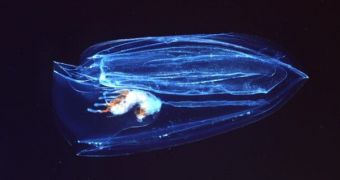British investigators from the UK Royal Society have determined in a new study that some of the propositions related to mitigating the effects of global warming and climate change through geoengineering are feasible, or at least technically possible. These approaches may also yield positive results, the same report also states. Geoengineering refers to producing artificial changes in the planet's atmosphere, and/or oceans, with the effect of cooling down the climate, or accelerating the absorption and storage of carbon dioxide, the main greenhouse gas, in the oceans, the BBC News reports.
The new paper, however, highlights the fact that the feasible propositions should not, under any circumstances, prevent governments from continuing to reduce carbon dioxide levels. They add that, even if the most optimistic geoengineering schemes prove to function, they will only do so in the short term, and will not be able to handle constant or increasing CO2 and methane emissions. In other words, these methods are just aids to the main effort, which should remain reducing the amount of carbon that the world's countries are emitting into the atmosphere yearly.
The schemes include a large number of propositions, some pertaining to science-fiction, and others that could really be applied to some effect. One, for example, suggests the building of large CO2 scrubbers on the ground that would effectively clean the air of carbon dioxide. Another holds that the best option consists of space-based mirrors that would reflect sunlight away from the Earth. A third one advocates dumping massive amounts of iron particles in the water that would feed the phytoplankton, which would, in turn, soak up more carbon and carry it to the bottom of the ocean.
Governments “should make increased efforts toward mitigating and adapting to climate change and in particular agreeing to global emissions reductions of at least 50% on 1990 levels by 2050 and more thereafter,” the authors write in their paper. “Further research and development [should] investigate whether low-risk methods can be made available if it becomes necessary to reduce the rate of warming this century,” they add.
“It is an unpalatable truth that unless we can succeed in greatly reducing CO2 emissions, we are headed for a very uncomfortable and challenging climate future. Geo-engineering and its consequences are the price we may have to pay for failure to act on climate change,” University of Southampton Researcher Professor John Shepherd, who has been the leader of the new UK Royal Society study, concludes.

 14 DAY TRIAL //
14 DAY TRIAL //